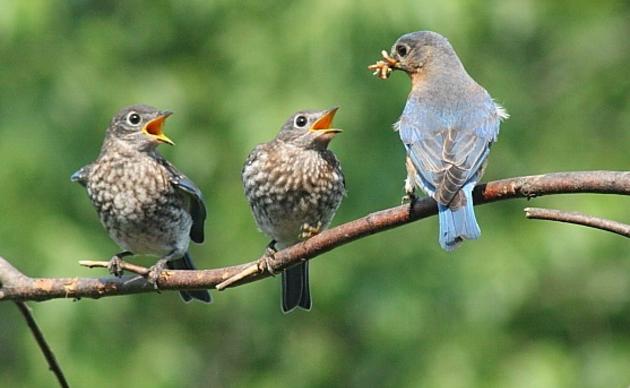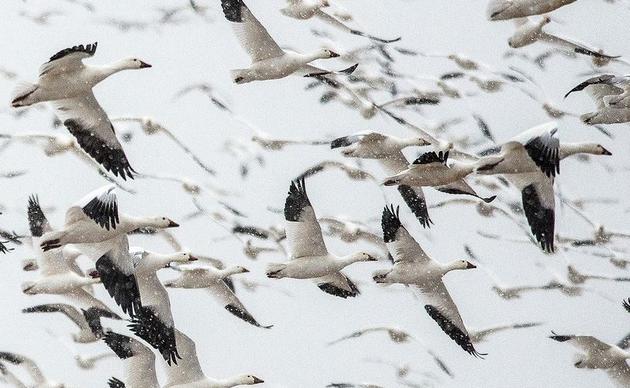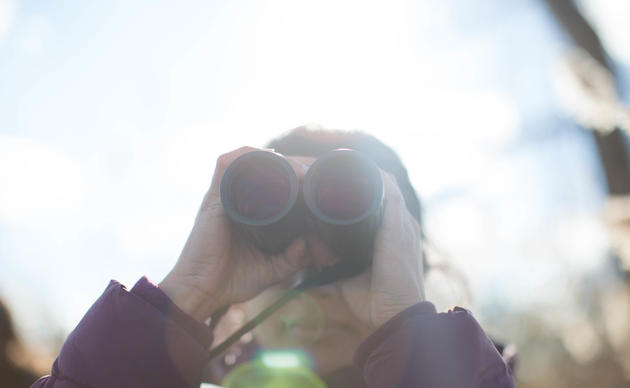ALBANY– Attorneys General from New York, California, Illinois, Maryland, Massachusetts, New Jersey, New Mexico and Oregon today filed litigation challenging the Trump Administration’s move to eliminate longstanding protections for waterfowl, raptors, and songbirds under the Migratory Bird Treaty Act (MBTA). Today’s suit, led by New York’s Attorney General, was filed in the Southern District of New York and will be considered alongside National Audubon Society v. Department of the Interior, which was filed on May 24, 2018.
“We are grateful that Governor Cuomo and Attorney General Underwood have joined Audubon in the fight to protect the Migratory Bird Treaty Act,” said Ana Paula Tavares, Executive Director of Audubon New York. “We are experiencing an unprecedented roll-back of our nation’s most important environmental protections, and New York State has exhibited extraordinary leadership in pushing back against the many attempts to dismantle key laws like the MBTA.”
“To borrow a phrase, this is welcome wind beneath our wings in the fight to keep this vital bird protection law intact,” said Sarah Greenberger, senior vice president of conservation policy for the National Audubon Society. “The MBTA sparked 100 years of conservation leadership in this country and it defies all facts for the Department of the Interior to now try to weaken it. As the case filed today demonstrates, states in every region of this country continue to rely on this law to guide bird protections, just as they did when it passed in 1918.”
In a legal opinion issued December 2017, the Trump administration abruptly reversed decades of government policy and practice—by both Democratic and Republican administrations—on the implementation and enforcement of the MBTA.
The Act's prohibition on the killing or "taking" of migratory birds has long been understood to extend to incidental take from industrial activities—meaning unintentional but predictable and avoidable killing. Under the Trump administration's revised interpretation, the MBTA’s protections will apply only to activities that purposefully kill birds. Any “incidental” take—no matter how inevitable or devastating the impact on birds—is now immune from enforcement under the law.
The risk of liability under the MBTA has long provided the oil and gas industry, wind energy development companies, and power transmission line operators with an incentive to work with the U.S. Fish and Wildlife Service to minimize bird deaths. For example, in an effort to protect migratory birds and bats and avoid potential MBTA liability, the wind industry, conservation groups, and the U.S. Fish and Wildlife Service worked to develop comprehensive guidelines aimed to ensure best practices for siting and developing wind farms. The Trump administration’s new policy eliminates this incentive for industries and individuals to minimize and mitigate foreseeable impacts of their activities on migratory birds, putting already-declining populations of our nation’s songbirds and other migratory birds at risk.
The MBTA also protects birds from fossil fuel development. Oil pits kill hundreds of thousands of birds – if incidental take liability is eliminated, industry need no longer take measures to protect birds from these hazards. In addition, when the 2010 BP Deepwater Horizon disaster spilled more than 210 million gallons of oil in the Gulf of Mexico more than 1 million birds were killed in the four years following the blowout. BP paid $100 million-dollars in fines under the MBTA that supported wetland and migratory bird conservation. The new interpretation would bar the federal government from seeking such mitigation under the MBTA for devastating oil spills in the future.
###
Contact: Erin McGrath, emcgrath@audubon.org, 518.869.9731
As a leading state program of the National Audubon Society, Audubon New York leads a network of 50,000 members, 27 local Audubon Chapters, seven sanctuaries and nature centers and our thousands of annual visitors, volunteers, and partners throughout the state. Audubon achieves its mission to protect birds and their habitats by connecting our vast and powerful network along the migratory flyways of the Americas through science, advocacy, education and on-the-ground conservation programs.







